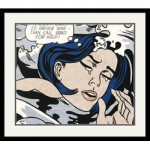 This month let us bless rather than curse Mercury retrograde.
This month let us bless rather than curse Mercury retrograde.
The Goddess gives us these brief periods of apparent backwards planetary movement three or four times a year, to review logistical decisions and other mental contents. What a good idea this is, when you think about it.
It’s our chance to look twice at those elusive wisps of mental energy that otherwise flit on by without a second glance: our thoughts. Mercury Retrograde lets us observe a phenomenon that, despite being ever-present, completely defies observation otherwise: the workings of our own minds.
How many times have you wished you’d gone over a set of instructions  more than once before putting them to the test? How often have you wished you’d read more thoroughly a contract before signing it, or reconsidered a response before hitting Send or opening your mouth?
more than once before putting them to the test? How often have you wished you’d read more thoroughly a contract before signing it, or reconsidered a response before hitting Send or opening your mouth?
Between the 6th and the 28th of this month, take advantage of this cosmic nudge to review, reread and re-perceive.
Relationship Stories
 One of the things up for review right now is what we mean by love, and how we communicate it.
One of the things up for review right now is what we mean by love, and how we communicate it.
Valentine’s Day1 is on a Full Moon this year. On the 14th, the Moon and Sun are at 26 Leo/Aquarius. This promises a whole bevy of revelations about an area of life as confounding to us as it is vital.
Venus conjoined the Sun on January 11th, and has just turned direct as the month begins. She remains in dry, pragmatic  Capricorn, whose planetary ruler, Saturn (definition), has just been squared by the Sun. This is the perfect time to subject our relationship stories to critical parsing.
Capricorn, whose planetary ruler, Saturn (definition), has just been squared by the Sun. This is the perfect time to subject our relationship stories to critical parsing.
Dare we hold these feeling-steeped mental pictures at arm’s length, far enough away from our eyeballs to really see them? The fact that this may sound difficult is interesting. It suggests there’s something about affairs of the heart that defies critical observation.
The fact that it may seem undesirable is even more interesting. Are we afraid to view our relationships clearly?
 Love vs. Sex
Love vs. Sex
It’s hard to think of a word/ concept that’s deployed as indiscriminately  as “love.” It’s used as a catch-all for a whole motley of human impulses. This overuse serves many purposes, from the poetic to the deliberately misleading, none of which leads to self-awareness.
as “love.” It’s used as a catch-all for a whole motley of human impulses. This overuse serves many purposes, from the poetic to the deliberately misleading, none of which leads to self-awareness.
In the interest of terminological precision, let’s start by separating “love” out from its use as a euphemism for sex. Since most of us in the modern world don’t think sex requires an apology anymore, why not call a spade a spade?
Consider early rock & roll. Each and every record was an encrypted ode to adolescent hormones.  These “love” songs may have talked about wedding bells and lifelong commitment, but what they really meant was Tonight, baby.
These “love” songs may have talked about wedding bells and lifelong commitment, but what they really meant was Tonight, baby.
We may hope for both — a happy mixture of love and sex — in our intimate relationships. But they are not the same thing, as innumerable knowing jokes (the wink-wink-nudge-nudge kind) make clear.
Many tear-stained diary entries and marital disasters have arisen over the ages because of the deliberate obfuscation of love and lust.
Love vs. Like
An even more overlooked distinction is the one between love and like.  Venus is often described as the Planet of Love. But as Rob Hand has suggested, it’d be more fitting to call it the Planet of Like.3
Venus is often described as the Planet of Love. But as Rob Hand has suggested, it’d be more fitting to call it the Planet of Like.3
We like what we are attracted to. To be drawn to a certain person, to be fond of a certain activity, to prefer coffee over tea — this is Venus.
Contrast the trans-personal lure of Venus’ higher octave, Neptune, which comes closer to what most of us mean by the word “love.” Especially as we move into the latter part of February, pondering this distinction is a good idea.
Shift into Pisces
The Sun enters Pisces four days after Valentine’s Day. This is our annual tumble into mutable water, an ingress that has made an especially big splash these past couple of years — because Neptune, god of the oceans, has also been in Pisces2.  At the same time, Mercury Retrograde will be squaring Saturn. This will sharpen our ability to self-observe; to ask ourselves precisely what’s going on.
At the same time, Mercury Retrograde will be squaring Saturn. This will sharpen our ability to self-observe; to ask ourselves precisely what’s going on.
On the 23rd the Sun reaches Neptune’s exact degree. It’s a conjunction that subtly but profoundly shifts our psychic status quo. People with a lot of water planets in their charts will feel it particularly acutely. There may be a sense of entering new depths, as when we are wading into a lake and suddenly step over the edge of a drop-off.
We feel immersed in our surroundings, like a fish in the sea.
Leaking Boat
There are as many ways to interpret this experience as there are individual ways of perceiving; everything depends, as always, on our level of awareness. One way or another, the shift into Pisces melts down our boundaries.
Like a leaking boat, we start to register how connected we are to the larger environment. Whether this phenomenon strikes us as blissful or terrifying depends upon our preconceptions and the specifics of the chart.
cSpiritual seekers will see this leakage as a reminder that we are a piece of the world. We may notice how affected we are by the weather, by noise and temperature, by other people.
In swimming class, we were told that if we’re drowning, we should tread water, or turn over and float. When drowning in a psychic sense, the counsel is the same. Instead of thrashing around in confusion, we should float along in our circumstances.
Venus vs. Neptune
This is just the right context in which to ponder the difference between garden-variety liking and what we’re really after when we talk about love.
ponder the difference between garden-variety liking and what we’re really after when we talk about love.
Venus governs sweetness, literally (honey, sugar) and figuratively: it’s what we want to feel for the person with whom we associate that box of chocolates on Valentines Day. Yet each of us knows only too well that in our most memorable relationships, sweetness is often in short supply. In fact it is often surpassed by ache.
Venus is also said to govern the principle of magnetism; both literal (iron filings to a magnet) and figurative (personal attraction). Here, too, honesty requires admitting that, in many significant relationships, a far more complex and contradictory stew of sensations is at work than mere attraction. In some cases attraction is paired with, and sometimes trumped by, repulsion.
Moreover, the location of her orbit in the solar system (near the Sun and within the orbit of Saturn4) makes Venus, all by herself, a poor contender for rulership over this complex human experience.
Personal planets are incapable, all by themselves, of explaining the tumult of light and dark, pleasure and pain such as accompany a life-altering love affair.
Personal vs. Transpersonal
 When feelings of intense yearning are described by clients (who call them love), astrologers infer the presence of Neptune, symbol of the oceanic mind.
When feelings of intense yearning are described by clients (who call them love), astrologers infer the presence of Neptune, symbol of the oceanic mind.
We suspect there’s something else going on besides Venus, not because of any deficiency on the part of the inner planets, but because the outer planets have an entirely different purpose: to get us in touch with our soul.
Infatuation, for example, is more Neptune than Venus. The giddy rapture that temporarily transports us into a dream state, or that pitches us into ecstatic drama, is the work of something in our psyche that seeks to transcend the personal.
We tend to project such feelings onto human beings — “He makes me feel like I’m walking on air”, “Being with her is magical” — but they are not about other people. They are about the divine.
Neptune is closer to what the Greeks meant by agape. This is the planet that gives us a glimpse of a realm beyond personal love. It makes us yearn to live in that realm.
At best, these spiritual impulses don’t compete with but augment our relationships, pumping them full of inspiration. This is the optimal way to use Venus and Neptune combinations, natally and by transit. These aspects invite our hearts to open up, in a way that washes away the myriad walls that separate us from others.
In the context of pop culture, including pop astrology, it is almost a blasphemy to suggest that anything could be more sublime than an ideal one-to-one relationship (Venus). But transpersonal astrology does propose that a more fully realized version of love does exist; and it is governed by Neptune.
In its purest expression, Neptune manifests as the unconditional love for not just a singular being, but everything in existence.
 Romance
Romance
As is true of all the outer planets, to experience this purest expression of Neptune we must be fully in the moment. To paraphrase Oscar Wilde, there’s no such thing as romantic experiences; there are only romantic memories.
Romance is something we savor from the past, or harbor as a dream for the future. Real Neptunian love (bliss), by contrast, shows up in only in present time.
Though this potential is there in every one of us,5 it’s not something we can summon. Neptune’s revelations come to us unbidden and in fleeting glimpses, and its personification — in a true avatar, a fully awakened Christ figure — is notoriously rare.
When Neptune’s partial expression is present but misunderstood — that is, when our longing for the sublime is misdiagnosed as Venusian attraction to another human being — the result is emotional confusion, at best, heartbreaking disappointment, at worst.
The god of mists and waters is fond of messing with our social lives. He may send us a mortal beloved to carry his immortal message, thus using the state of being in love to make his point. This is a fabulous experience, so long as we don’t mistake the lover for the god himself.
Or he may manifest as a sense of being inundated by life — emotionally, psychologically, even intellectually. Drowning can take many forms.
Notes
1 The appointing of Feb 14th in the Gregorian calendar as a celebration of romance has little to do with any of the several dubiously historical figures called St Valentine. The early Church of Rome made a habit of co-opting pagan festivals, renaming them, and decorating them with stories about random martyrs.
For the ancient Romans, the ides of February marked Lupercalia, a fertility festival honoring the she-wolf who suckled Romulus and Remus. The redoubtable Barbara Walker, in Women’s Encyclopedia of Myths and Secrets (1983), traces “February” to Juno Februata: the goddess fevered-up by eros [febris]. Later, Renaissance poets included amorous notes as part of their cult of courtly love. Later still, the passion-phobic Victorians used Valentine cards to express emotion within the safe conventions of print.
2 Neptune, which takes 168 years to cycle through the zodiac, is currently in Pisces between 2011 and 25. It was last there between 1848 and 1852.
3 Outside the scope of this essay is the cyber-connotation “Like” has acquired, which would make a fascinating linguistic study. The verb’s new connotations include a frightening commercial distortion that threatens to submerge its innocent traditional meaning. Check out the excellent PBS Frontline, “Generation Like.”
4 The distinctions between the outer and inner planets are outlined in detail in the new anthology, Transpersonal Astrology.
5 To respectfully prepare for the sea god’s visit, do a study of Neptune’s location in your natal and transit charts and/or have your chart done professionally.




